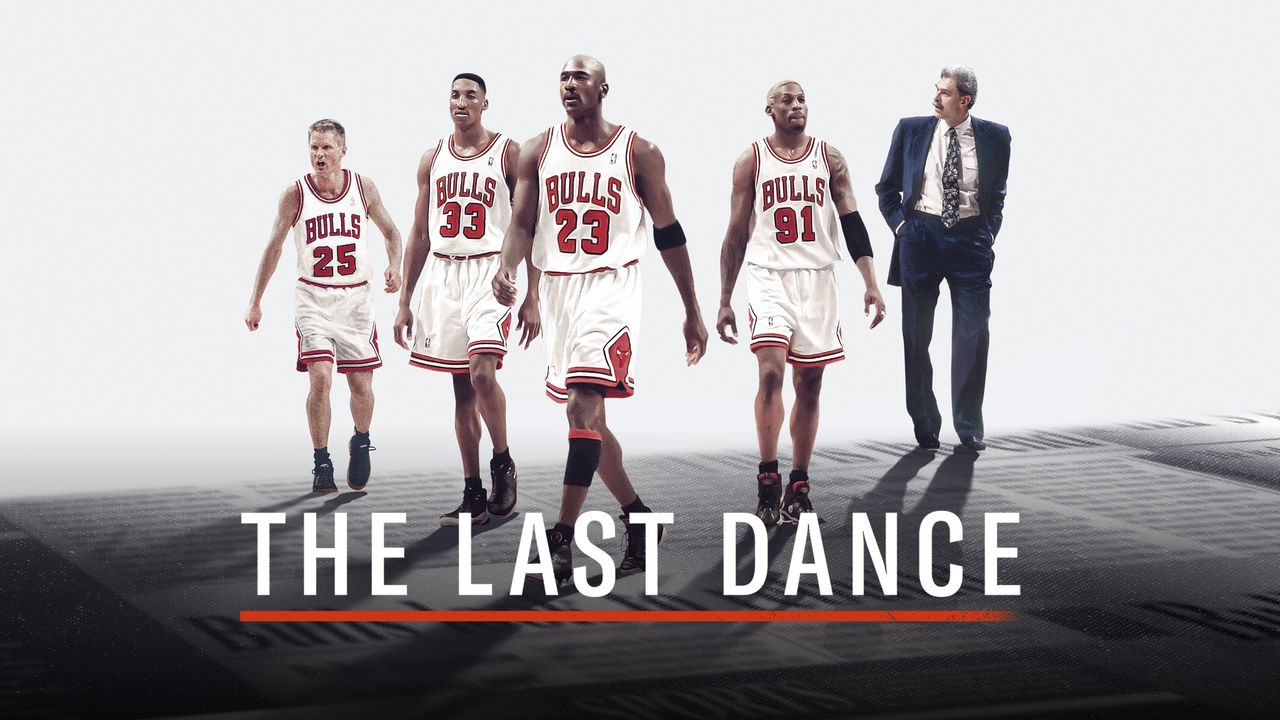ESPN’s documentary The Last Dance redefines the true Michael Jordan—and the true Chicago Bulls franchise
Honesty. That’s the word that binds together The Last Dance.
The ten-part documentary, which aired two parts at a time on ESPN for the past five Sundays, follows Michael Jordan and the 90s Chicago Bulls through their six championships and all the accompanying heartache and struggle. It’s centered on never-before-seen footage from the 1997-98 season, Jordan’s last season with the Bulls.
The documentary itself is a fun-filled, wonderfully immersive look at the Bulls dynasty that won six championships. It presents the true Michael Jordan: warts, flaws, gravity-defying dunks, clutch gene, and all. Above all, though, The Last Dance contrasts the honesty with which Jordan pursued winning with the Bulls franchise’s two-faced mishandling of the very same.

It’s made clear that Jordan isn’t perfect. In fact, an entire episode of The Last Dance is devoted to the pressure wrought on Jordan by his squeaky-clean “Be Like Mike” image and international fame, and revisits this theme throughout. But at the end of the day, Michael Jordan is still someone to admire; not necessarily because of his insane basketball talent, but because of his unflinching, up-front, unfiltered honesty. He cares entirely, completely, about winning, and invested his soul in pursuit of that goal.
Time and time again, The Last Dance shows Jordan’s mindset in action. Jordan toughens up physically in order to beat the Bad Boy Detroit Pistons. Jordan declines to support any political candidates, reflecting that he’s an athlete dedicated to playing basketball, not a politician or a figurehead. Jordan refuses to spend time better spent training on defending himself to the media when his betting comes to light. Jordan, retired, rebuilds his body to play baseball. Jordan, after unretiring, hounds his younger teammates to toughen them up, which comes to a head when he punches Steve Kerr in the face in a fight at practice.
Jordan pours in 38 points in Game 5 of the 1997 NBA Finals while suffering from a nasty case of food poisoning in the famous (misnamed) Flu Game.
Jordan wins six championships. Jordan becomes the greatest basketball player of all time.
How can you not admire such single-minded dedication? This isn’t some made-up publicity story, a nice line for the media. No, it rings true in everything he did and does. Jordan is the definition of intrinsically motivated. His everything just happened to be basketball. That’s what makes him the greatest of all time. Each and every episode of The Last Dance captures that motivation.

Jose More // Chicago Tribune
But Jordan himself didn’t want The Last Dance to be just about him; he wanted it to be about the Chicago Bulls franchise as a whole. And as becomes clear through the documentary’s interviews and archival footage, the leadership of the Bulls franchise gives an excellent counterpoint to Michael Jordan and his honesty.
Franchises exist to entertain fans, to make money, and to win—at least, they’re supposed to. And that’s what owner Jerry Reinsdorf and late former Bulls GM Jerry Krause claim were the Bulls’ goals, too. Unfortunately, unlike with Jordan, there’s no evidence that that’s the truth, and it’s hard not to read certain moments in The Last Dance as completely contradictory to that stated goal.

Early on in the series, the Bulls provided no protection for a young Michael Jordan as he became perhaps the first superstar to transcend sports, and allowed the media to hound him every time he stepped foot off the court. During the same period, Reinsdorf refused to renegotiate Scottie Pippen’s contract—a contract in which he was being paid 128th best in the league—despite Pippen being one of the NBA’s top ten players. Over and over again, Krause said that head coach Phil Jackson would not return after the 1997-98 season, even if he went 82-0. At the time, Jackson had just won the NBA championship, the fifth to which he had coached the Bulls. In the last episode, Reinsdorf and Krause refused to keep the team together after their 97-98 championship. They wanted to go through a rebuild, not keep the all-time great team they already have.
Who wants to go through a rebuild rather than continuing with Michael Jordan and Phil Jackson? There’s a dissonant chord that can’t be ignored in the interviews with Reinsdorf and old interviews with Krause that make clear the ulterior motives driven not by winning, but by egos and selfish pride. The need to rebuild is stated as a fact when it seems, from an outsider’s perspective, to be exactly the opposite.
Honesty—or lack thereof—comes through in documentaries, as in life. The Last Dance is a thoroughly captivating reminder of this life lesson. Excuse me while I go watch it again.


Leave a Reply